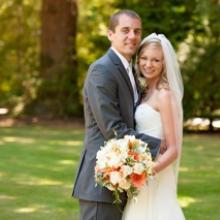Brigham Young University

Image via Gil C/Shutterstock.com
On April 10, Columbia University presented 21 Pulitzer Prizes for achievements in journalism, literature, and music. Notables from the list of social justice-oriented works that received a Pulitzer Prize include: New York Daily News and ProPublica receiving the Public Service award for reporting on evictions of mostly poor minorities carried out by police abusing the law —
The Utah Republican is on 11 state ballots. He has no major-party backing, and he’s little known outside of the Beehive State.
But Mormon disaffection with Donald Trump is offering the Provo-born graduate of Brigham Young University a chance to disrupt the outcome in this reliably red state, which has not gone to the Democrats since 1964.
A group of Brigham Young University graduates is strengthening its push for students who lose their Mormon faith to retain their spots at the private school.
Students do not have to be Mormon to attend the Provo university, but those who enter as members of the Church of Jesus Christ of Latter-day Saints and later leave the faith face expulsion from BYU.
Activist group FreeBYU filed a complaint last week with the nonprofit accrediting board that evaluates the LDS church-owned school for the U.S. Department of Education. The filing alleges that the policy hinders academic and intellectual freedom at BYU, which is due for a seven-year accreditation review in April.
Organizer Brad Levin says many students who are “in the closet” about changing or leaving their faith must censor themselves in classrooms, online, and in the wider BYU community. Such students should receive the same religious protection as non-Mormons, FreeBYU contends.
“They don’t know what’s going to put them in hot water,” Levin said.
When Dordt College graduates Jordan Harmelink and Rachel Tennant said “I do” at their July wedding, they joined the masses of graduates who meet their spouse at private Christian colleges.
According to an analysis by Facebook, of the top 25 colleges where men are most likely to meet their spouse, all are private Christian institutions. For women, more than half (64 percent) of the top 25 colleges where they’re likely to find a husband are religious schools.
The 12 schools that appear on both lists: They’re all Christian colleges.
Four died in transit accidents. Four succumbed to health problems. One was electrocuted while doing a good deed and another fell to a stray bullet.
Ten Mormon missionaries have died so far in 2013, far above typical levels. And while church officials insist the spike doesn’t represent a trend, it has raised anew the question: Is missionary work safe?
The answer, according to the head of the faith’s Missionary Department, is an emphatic yes.
In a rare statement issued in September after the 10th missionary died, Elder David F. Evans said Mormon missions are inherently safe. At the same time, he offered words of solace to the affected families.
For some Mormon feminists, there can be only one goal on the road to gender equality: ordination to the all-male priesthood.
After all, every worthy male in the Church of Jesus Christ of Latter-day Saints — starting at age 12 — is ordained in this priesthood. It is seen as a holy power, described as the authority to act in God’s name, yet given exclusively to men.
At the same time, lots of Mormon women are perfectly comfortable with the roles they believe God assigned to them, including motherhood and nurturing. They would not want, they say, to “hold the priesthood.”
Now comes a third and, some suggest, growing group of Mormon women somewhere between these two poles.
They are not pushing for ordination, but they crave a more engaged and visible role for women in the Mormon church. It is a role, they believe, that their Mormon foremothers played — and one that could fit easily into the institutional structure without distorting or dismantling doctrine.



